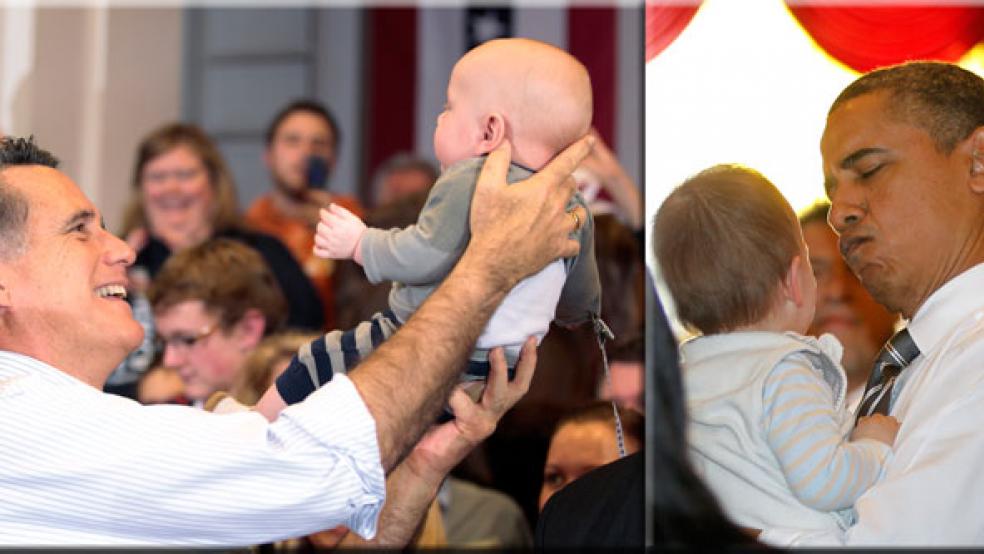Unlike the Public Editor of The New York Times, I am quite certain that Americans will learn all they need to know about Mitt Romney and Barack Obama by November. Arthur Brisbane, The Times’ official ombudsman, wrote a tormented op-ed last weekend about the low-brow campaigns being waged by both candidates, anguishing over whether The Times should use its “muscle” to “reset’ the dialog to a higher plane. The piece was ripe for parody; The Times has never suffered from insecurity but rarely has it so proudly paraded its own self-importance.

Mr. Brisbane is correct that both Romney and Obama have spent too much time on personal attacks and too little publishing their plans for how to get the country moving. Both, however, are dealing with political reality. The only candidate who can run on President Obama’s record is Mitt Romney. Some think that’s all Mr. Romney needs to do, and that dishing up too many policy pronouncements will only cost him some slice of the anti-Obama vote. We shall see.
Voters will doubtless separate the wheat from the chaff. Consider our past. Americans have a thirst for progress but also a healthy respect for what works in our country. We will occasionally take a chance on an untested candidate who promises the advantages of youth and energy – like John F. Kennedy and Barack Obama. But we also have a shrewd sense of when we are veering dangerously from the model that has made the United States the most successful country in the history of the modern world. That is not “bumper sticker rhetoric” of the sort derided by Mr. Brisbane. It is a fact.
In 1980, we elected Ronald Reagan because it was clear to most of the country that Jimmy Carter made a better peanut farmer than president. In 2010, the country rose up and sent a new crop of legislators to Congress – people committed to righting our fiscal ship. In the midst of a terrible recession, President Obama had pushed grandiose, expensive programs that threatened our financial resources and that allowed more government to creep into our daily lives. Americans got mad and delivered a solid midterm thumping to our young president.
Unlike Bill Clinton, who also got whacked in his first midterm election, Mr. Obama has made absolutely no concession to the sentiment of the nation. His White House has continued to ignore businesses’ objections to overreaching regulations and higher taxes, has pursued questionable investments that mock our straightened circumstances and has divided the country after promising to heal the rifts caused by his predecessor.
It is not as though it is hard to read the mood of the country. The most recent Gallup survey reveals what Americans are concerned about, and the results will only surprise those residing at 1600 Pennsylvania Avenue. The number one issue is jobs, as it has been since the financial crisis hit. In November, voters will first and foremost choose the candidate whom they think best able to reboot our soggy economy.
History will show that the greatest mistake of Mr. Obama’s presidency was his take-no-prisoners drive for healthcare legislation at a time when millions of Americans were losing their jobs. Not only did his legacy-building show him to be out of sync with the country, but the debate over Obamacare arguably snapped the green shoots of the recovery. Businesses worried about the consequences of the law and Americans saw our future even more deeply mired in debt. Most important, perhaps, is that the questionable promises and projections used to sell the bill eroded public confidence in our president, just as we longed for leadership.
What else are Americans worried about? Reducing corruption and reining in our federal budget deficit rank just below jobs. Charges of crony capitalism have plagued both parties for decades. But the more Obama tries to paint Mitt Romney as the evil, heartless business guy, the more he risks his own administration’s skeletons rattling in the closet.
Obama’s drive for green energy, with Democrat funders allegedly receiving “fast-track” approval of union-favored projects, and the bankruptcies of Solyndra, Ener1 and Beacon Power losing hundreds of millions of taxpayer dollars, are two examples. Add to that the deal cut with Big Pharma over the Affordable Care Act. The losses on green energy of course add but a drop in our sea of federal debt. With the administration projecting a fourth consecutive trillion-dollar deficit, Obama struggles to campaign on fiscal sobriety.
The next item on the list of concerns is “dealing with terrorism.” In this realm, the president comes up roses, thanks to the death of Osama Bin Laden. Also, much to the chagrin of the left, President Obama has continued, and even escalated, the controversial use of drones in attacking militants and other Bush-era policies (think Guantanamo) that were so reviled during the past decade. Good for him; the nation is safer for it.
However, just as damaging to President Obama’s reelection hopes as the issues most important to voters are the issues of least importance. In this category we find Obama’s two principal campaign planks: increasing taxes on the wealthy and addressing global warming. These simply do not top the nation’s shopping list.
Americans agree with the president that the rich should pay their “fair share” in taxes, and most think that if tax increases are a necessity, they should hit the rich and not the middle class. Voters may conclude, though, that raising taxes will not create jobs. My guess is that come November, voters will make a sensible choice, even if The New York Times’ self-described “higher journalist ambitions” are not met.






